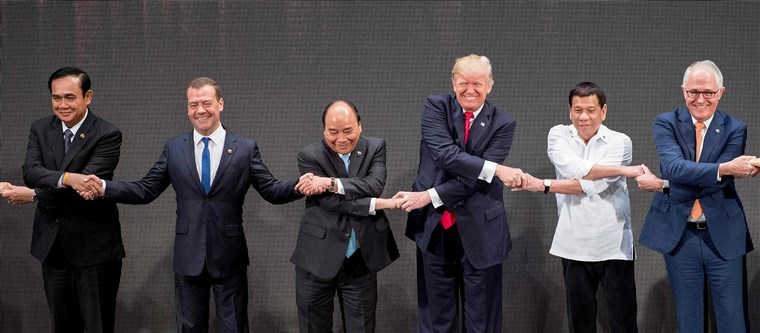World leaders, representatives of non-governmental organizations, young people, business leaders and community groups today began unveiling their commitments to end preventable maternal death, meet all women’s demand for family planning, and stop violence against women and girls by 2030.

The commitments are being made during the three-day Nairobi Summit on ICPD25, taking place 25 years after the landmark International Conference on Population and Development, in Cairo, where 179 governments adopted an action plan for women’s empowerment and sexual and reproductive health for all.
“The International Conference on Population and Development in Cairo began the push to put women and girls at the centre of global development. This has paid off time and again. But that ICPD vision is still far from reality, and that journey that began 25 years ago in Cairo is far from over,” UNFPA Executive Director Dr. Natalia Kanem said at the start of the summit. “It’s time now to finish that unfinished business.”
Various Heads of State, among them Somalia’s Mohamed Farmajo are attending the meeting.
“Kenya is proud to host 6,000 world leaders, representatives of non-governmental organizations, young people, business and religious leaders, and so many others from 160 countries,” says Ambassador Macharia Kamau, Principal Secretary to Kenya’s Ministry of Foreign Affairs. “Kenya will be front and centre of this watershed moment for women and girls everywhere.”
At the summit, top government officials, including heads of state, parliamentarians and representatives from non-governmental organizations will announce financial and programmatic commitments, policies and other initiatives with a view to achieving all the goals laid out in the ICPD in 1994. So far, more than 1,000 commitments have been made.
“We have come a long way since the ICPD in living up to our global commitment to make sexual and reproductive health and reproductive rights a reality for all,” says Arthur Erken, Director of Communications and Strategic Partnerships at UNFPA, the United Nations sexual and reproductive health agency. “But we still have a long way to go before we can say that we have achieved that goal,” he adds. “We must step up our efforts to make modern contraceptives available to all who want and need it, improve maternal health care and protect women and girls from gender-based violence and harmful practices like child marriage and female genital mutilation.”
“In 1994 at the ICPD, we imagined a world where one day, no woman would die giving birth, where no woman would be at risk of unintended pregnancy, and no girl would be denied her right to make a safe and healthy transition through adolescence and adulthood,” according to Denmark’s Special Envoy for ICPD25 Ambassador Ib Petersen. “The world we imagined is now within reach, but we must join forces to make it a reality once and for all.”
Achieving the goals of the ICPD is also critical to achieving the Sustainable Development Goals, which depend on women’s empowerment and gender equality.
The Summit is bringing together an unusually diverse group of people including top government officials, thought-leaders, technical experts, religious leaders, activists and community organizers, young people, business leaders, indigenous peoples, international financial institutions, people with disabilities, academics and many others committed to sexual and reproductive health and rights.
The Summit will focus on five main issues: sexual and reproductive health as part of universal health coverage, the funding required to realize all goals of the ICPD’s Programme of Action, demographic diversity and its power to drive economic growth and sustainable development, measures to end gender-based violence and harmful practices, and the right to sexual and reproductive health care, even in humanitarian and fragile contexts.
Discussions at the summit will also highlight the power of gender equality, youth leadership, political and community leadership, innovation and data, and partnerships to accelerate change.

